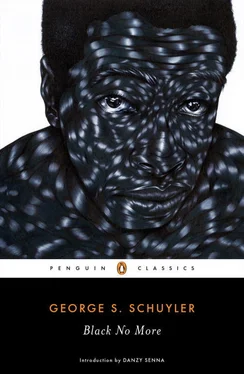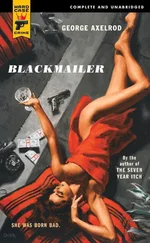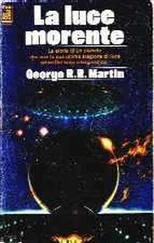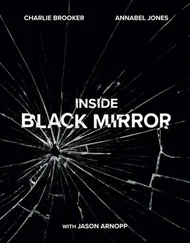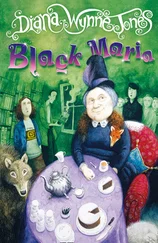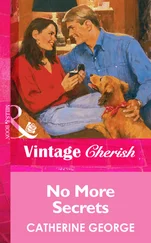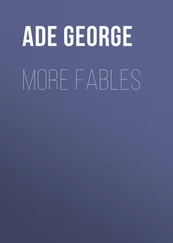“But is the transformation transferred to the offspring?” persisted the Negro newspaperman.
“As yet,” replied Crookman, “I have discovered no way to accomplish anything so revolutionary but I am able to transform a black infant to a white one in twenty-four hours.”
“Have you tried it on any Negroes yet?” queried a skeptical white journalist.
“Why of course I have,” said the Doctor, slightly nettled. “I would not have made my announcement if I had not done so. Come here, Sandol,” he called, turning to a pale white youth standing on the outskirts of the crowd, who was the most Nordic-looking person in the room. “This man is a Senegalese, a former aviator in the French Army. He is living proof that what I claim is true.”
Dr. Crookman then displayed a photograph of a very black man, somewhat resembling Sandol but with bushy Negro hair, flat nose and full lips. “This,” he announced proudly, “is Sandol as he looked before taking my treatment. What I have done to him I can do to any Negro. He is in good physical and mental condition as you all can see.”
The assemblage was properly awed. After taking a few more notes and a number of photographs of Dr. Crookman, his associates and of Sandol, the newspapermen retired. Only the dapper Max Disher remained.
“Hello, Doc!” he said, coming forward and extending his hand. “Don’t you remember me? I’m Max Disher.”
“Why certainly I remember you, Max,” replied the biologist, rising cordially. “Been a long time since we’ve seen each other but you’re looking as sharp as ever. How’s things?”
The two men shook hands.
“Oh, pretty good. Say, Doc, how’s chances to get you to try that thing on me? You must be looking for volunteers.”
“Yes, I am, but not just yet. I’ve got to get my equipment set up first. I think now I’ll be ready for business in a couple of weeks.”
Henry Johnson, the beefy, sleek-jowled, mulatto “Numbers” banker, chuckled and nudged Dr. Crookman. “Old Max ain’t losin’ no time, Doc. When that niggah gits white Ah bet he’ll make up fo’ los’ time with these ofay girls.”
Charlie Foster, small, slender, grave, amber-colored, and laconic, finally spoke up: “Seems all right, Junius, but there’ll be hell to pay when you whiten up a lot o’ these darkies and them mulatto babies start appearing here and there. Watcha gonna do then?”
“Oh, quit singin’ th’ blues, Chuck,” boomed Johnson. “Don’t cross bridges ’til yuh come tuh ’em. Doc’ll fix that okeh. Besides, we’ll have mo’ money’n Henry Ford by that time.”
“There’ll be no difficulties whatever,” assured Crookman rather impatiently.
“Let’s hope not.”
—
Next day the newspaper carried a long account of the interview with Dr. Junius Crookman interspersed with photographs of him, his backers and of the Senegalese who had been turned white. It was the talk of the town and was soon the talk of the country. Long editorials were written about the discovery, learned societies besieged the Negro biologist with offers of lecture engagements, magazines begged him for articles, but he turned down all offers and refused to explain his treatment. This attitude was decried as unbecoming a scientist and it was insinuated and even openly stated that nothing more could be expected from a Negro.
But Crookman ignored the clamor of the public, and with the financial help of his associates planned the great and lucrative experiment of turning Negroes into Caucasians.
The impatient Max Disher saw him as often as possible and kept track of developments. He yearned to be the first treated and didn’t want to be caught napping. Two objects were uppermost in his mind: To get white and to Atlanta. The statuesque and haughty blonde was ever in his thoughts. He was head over heels in love with her and realized there was no hope for him to ever win her as long as he was brown. Each day he would walk past the tall building that was to be the Crookman Sanitarium, watching the workmen and delivery trucks; wondering how much longer he would have to wait before entering upon the great adventure.
At last the sanitarium was ready for business. Huge advertisements appeared in the local Negro weeklies. Black Harlem was on its toes. Curious throngs of Negroes and whites stood in front of the austere six-story building gazing up at its windows.
Inside, Crookman, Johnson and Foster stood nervously about while hustling attendants got everything in readiness. Outside they could hear the murmur of the crowd.
“That means money, Chuck,” boomed Johnson, rubbing his beefsteak hands together.
“Yeh,” replied the realtor, “but there’s one more thing I wanna get straight: How about that darky dialect? You can’t change that.”
“It isn’t necessary, my dear Foster,” explained the physician, patiently. “There is no such thing as Negro dialect, except in literature and drama. It is a well-known fact among informed persons that a Negro from a given section speaks the same dialect as his white neighbors. In the South you can’t tell over the telephone whether you are talking to a white man or a Negro. The same is true in New York when a Northern Negro speaks into the receiver. I have noticed the same thing in the hills of West Virginia and Tennessee. The educated Haitian speaks the purest French and the Jamaican Negro sounds exactly like an Englishman. There are no racial or color dialects; only sectional dialects.”
“Guess you’re right,” agreed Foster, grudgingly.
“I know I’m right. Moreover, even if my treatment did not change the so-called Negro lips, even that would prove to be no obstacle.”
“How come, Doc,” asked Johnson.
“Well, there are plenty of Caucasians who have lips quite as thick and noses quite as broad as any of us. As a matter of fact there has been considerable exaggeration about the contrast between Caucasian and Negro features. The cartoonists and minstrel men have been responsible for it very largely. Some Negroes like the Somalis, Filanis, Egyptians, Hausas and Abyssinians have very thin lips and nostrils. So also have the Malagasys of Madagascar. Only in certain small sections of Africa do the Negroes possess extremely pendulous lips and very broad nostrils. On the other hand, many so-called Caucasians, particularly the Latins, Jews and South Irish, and frequently the most Nordic of peoples like the Swedes, show almost Negroid lips and noses. Black up some white folks and they could deceive a resident of Benin. Then when you consider that less than twenty per cent of our Negroes are without Caucasian ancestry and that close to thirty per cent have American Indian ancestry, it is readily seen that there cannot be the wide difference in Caucasian and Afro-American facial characteristics that most people imagine.”
“Doc, you sho’ knows yo’ onions,” said Johnson, admiringly. “Doan pay no ’tenshun to that ole Doubtin’ Thomas. He’d holler starvation in a pie shop.”
—
There was a commotion outside and an angry voice was heard above the hum of low conversation. Then Max Disher burst in the door with a guard hanging onto his coat tail.
“Let loose o’ me, Boy,” he quarreled. “I got an engagement here. Doc, tell this man something, will you?”
Crookman nodded to the guard to release the insurance man. “Well, I see you’re right on time, Max.”
“I told you I’d be Johnny-on-the-spot, didn’t I?” said Disher, inspecting his clothes to see if they had been wrinkled.
“Well, if you’re all ready, go into the receiving room there, sign the register and get into one of those bathrobes. You’re first on the list.”
The three partners looked at each other and grinned as Max disappeared into a small room at the end of the corridor. Dr. Crookman went into his office to don his white trousers, shoes and smock; Johnson and Foster entered the business office to supervise the clerical staff, while white-coated figures darted back and forth through the corridors. Outside, the murmuring of the vast throng grew more audible.
Читать дальше
